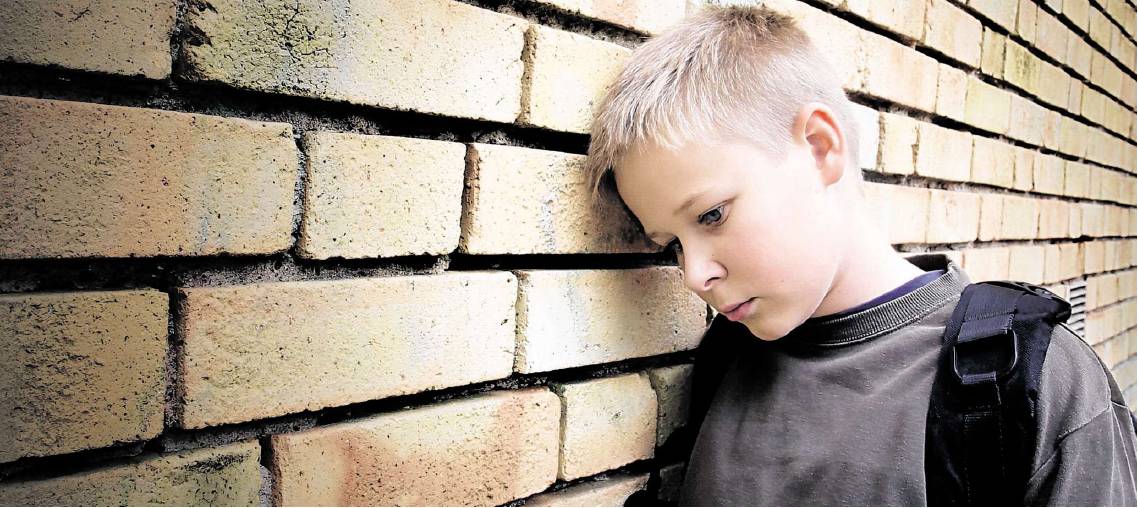 Q. A few months ago my 10-year-son and his friends were playing in a park near our home when they were threatened by a group of teenagers, who pushed and shoved them and tried to rob them. My son ran to our house to get help and the police were called, and later apprehended the teenagers.
Q. A few months ago my 10-year-son and his friends were playing in a park near our home when they were threatened by a group of teenagers, who pushed and shoved them and tried to rob them. My son ran to our house to get help and the police were called, and later apprehended the teenagers.
My son and the boys were very upset by the incident. The guards were really good at handling the situation. They chatted to my son and tried to allay his worries. They told him that the teenagers were not from the area and unlikely to visit again. They advised him to put the incident behind him. The trouble is that my son is unable to do that. My son talks about the incident a lot and I always stop what I am doing and sit and listen to him. I purposely don’t bring it up anymore as I don’t want my son dwelling on it, but I am really careful to try to be supportive and so, if he wants to talk about it, I listen to him.
Recently he had stopped talking about it and I thought he had put it behind him. But he came home very subdued the other day and he eventually told me he had seen a group of boys near the top of our road with cans of beer and he got a fright. We had a long chat about it and I found out that he is now afraid of any boy within the age range of the boys who attacked them. I did my best to show him that I understood his fears and I told him I was really glad that he had told me. I then tried to point out that it was very unlikely that he would be threatened again and discussed what he could do if he sees someone who he does not like the look of (eg. cross the road, go into a shop). However, any reassurance I give him does not seem to work.
He is now frightened of walking home from school alone. Since last September, at his request, he began walking home from school with friends, making the last part of the journey himself as his friend lives in another estate. Now because he is afraid of making the last part of the journey himself, he wants me to meet him half way. I started doing this, but I worry it is a step backwards. My husband thinks I should insist my son face his fears and walk home (as there is no real danger) but I worry about putting him under pressure. However I try to reason or reassure my son, he remains fearful. What approach would you recommend?
A. Many specific fears or phobias have their roots in a traumatic incident like the one your son experienced. It is great that your son can talk to you about his fears and that you are there to support and listen to him. This is the first step in overcoming a fear.
However, reassurance and reason go only so far as fears and phobias are largely irrational and can’t be simply reasoned away. Your son knows in his head that the journey home is most likely safe and that he should be able to walk home alone, yet that does not stop him from feeling afraid.
In addition to reassuring and reasoning with him that he is safe, the next step is to help your son actively manage his fears so that they don’t stop him doing things such as walking home. As the title of a popular self-book says – you want to help him “feel the fear and to do it anyway”.
The first step in doing this is to get his agreement that he wants to overcome his fears in specific situations. Ask him if he wants to tackle his fear and to walk home alone.
You can approach it gradually and step by step. For example, you can start with him walking unaccompanied only a very short distance and then gradually increase this. The key is to make the first step very small so he gets the chance to be successful.
To help him achieve this you can teach him strategies to manage his anxious feelings such as learning to relax himself by noticing his breathing, or by repeating self-coping statements such as “I can manage this” or distracting himself from his fear by focusing on his environment, etc.
You ask in your question whether your approach or that of your husband’s is the best one. The truth is that you are both right. It is important to be supportive and to only go at your son’s pace, but it is also important to encourage him to set a goal to overcome his fear in a specific situation (such as walking home).
There are a number of children’s books that focus on overcoming anxiety that you could read with your son. One I often recommend is What to do when you worry too much by Dawn Heubner, but there are also many others available online or at your library or bookshop.
Finally, if need be, consider seeking help from a counsellor or psychologist. Contact your primary care team or seek a referral from your GP to your local child mental health service or for a private practitioner, visit psihq.ie or irish-counselling.ie.
Dr. John Sharry, Irish Times Newspaper, June 2012. John writes in The Irish Times Health+ every Tuesday.
